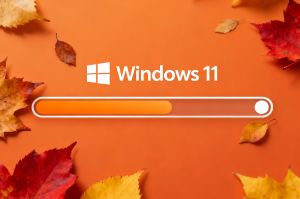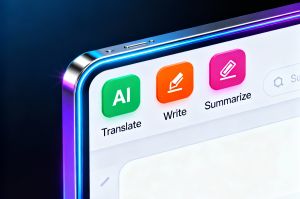 Apple patents 'privacy screens' for iPhones and Macs
Apple patents 'privacy screens' for iPhones and Macs
Even if the picture that comes to your mind when you hear “shoulder surfing” is that of a pirate with a parrot sitting next to his head, you have most likely been a party to an event described by this term as it is used nowadays. Imagine: you are commuting, and, as usual, have your iPhone before your eyes, and someone peeks over your shoulder, registering everything that transpires on the screen.
That happens all the time, and it’s not just annoying but downright dangerous. According to The Wall Street Journal, there have been numerous cases of thieves shoulder surfing, catching iPhone owners entering their passcodes, and then snatching the devices, already knowing how to unlock it to gain access to, well, pretty much everything.
 A typical shoulder surfing situation
A typical shoulder surfing situation
Apple reacted to this report with the following statement: “We sympathize with users who have had this experience and we take all attacks on our users very seriously, no matter how rare. We will continue to advance the protections to help keep user accounts secure.”
It is interesting to note that Apple actually aimed to extend the range of angles from which it is easy to see what’s on the screen of an iPhone, iPad, or a Mac. Currently, the claimed field of view measures 170 degrees.
Apple’s privacy screen patents: a viable solution
Thus, privacy screens seem to be one of the protections Apple committed to advance in its reply to The Wall Street Journal’s report. There are two patents, “Privacy Films for Curved Displays” and “Displays with Adjustable Angles of View.”
Both address one and the same problem, shoulder surfing. The former, as obvious from its title, seeks to register privacy screens for iPhones, while the latter is designed to protect owners of larger devices with flat screens from those wishing to take an unauthorized look.
“Privacy Films for Curved Displays” will be a special cover that lets you clearly see the screen only when it is right in front of you. Anyone looking from a position other than that will likely see nothing but blackness. The effect is enabled by directing light from the phone’s display along a very narrow set of vectors.
 Another typical shoulder surfing situation
Another typical shoulder surfing situation
“Displays with Adjustable Angles of View” will be more flexible: the patent promises two modes of operation, public and private. The former, basically, keeps screen visibility as it is, with the said 170-degree field of view. The latter, activated with a switch of some sort, puts current through the electrochromic display and thus makes it opaque from any angle other than right. You may have seen similar technology in glass walls that turn light-tight on demand.
It should be noted here that films and screens preventing peeking from angles other than 85-100 degrees have been around for a couple dozens of years now. You can see them used at some airport checkpoints, for example, and they can be found online as an accessory for your phone (search for “anti-spy screen” or something to that effect). Will there be a twist to what Apple plans to release? We’ll see.



